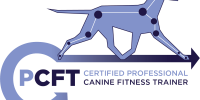Holistic Science-based Dog Training and Behaviour Modification
Science-Based Training for Optimal Results and Animal Well-being
At Pet Coach, we strongly believe in using scientifically-backed approaches based on learning science, while advocating for ethical and reward-based training practices that adhere to the “Least Intrusive, Minimally Aversive” (LIMA) paradigm (Friedman, 2010). We prioritise the welfare of the dogs to ensure low-stress training for both the pet and owner. We strive to establish positive, fulfilling relationships with dogs by understanding their behaviour and ethology.
We avoid tools or training methods that inflict severe emotional distress or physical harm to dogs. Examples of such tools/methods include electric shock and prong collars, or physical punishment. These punitive methods often result in defensive retaliation and can severely damage the human-animal bond. Furthermore, using these techniques may harm the animal psychologically and/or physically in the long term, and also decrease the efficiency of training, thus becoming counter-productive in reducing unwanted behaviours (China et al., 2020; Ziv, 2017).
Instead of intrusive methods, our consultants harness creative problem solving and skillful training techniques to address behavioural problems. Training is always carried out humanely, using positive reinforcement techniques to reward desirable behaviour while extinguishing undesirable behaviours by removing the original reinforcers and teaching the animal alternative ways of responding. Positive reinforcement, as opposed to aversive training practices, is associated with an improvement in the ability to learn and better performance and behaviour overall (Rooney & Cowan, 2011)
- China, L., Mills, D. S., & Cooper, J. J. (2020). Efficacy of dog training with and without remote electronic collars vs. a focus on positive reinforcement. Frontiers in Veterinary Science, 7. https://doi.org/10.3389/fvets.2020.00508
- Friedman, S.G. (2010). What’s Wrong with this Picture? Effectiveness is not enough. The Association of Professional Dog Trainers.
- Rooney, N. J., & Cowan, S. (2011). Training methods and owner-dog interactions: Links with dog behaviour and learning ability. Applied Animal Behaviour Science, 132 (3-4), 169-177. hips: //doi.org/10.1016/.applanim.2011.03.007
- Ziv, G. (2017). The effects of using aversive training methods in dogs- a review. Journal of Veterinary Behavior, 19, 50-60. https://doi.org/10.1016/j.iveb.2017.02.004



Behaviour Change is a Team Effort!
Our collaborative approach extends beyond addressing problem behaviours in your pet. We work closely with other pet services to ensure optimal rehabilitation. Additionally, we integrate enrichment activities such as Ruff Rovers into our behaviour change programmes, complementing the behaviour plan to promote natural behaviour, reduce stress, and enhance learning outcomes.
Research has shown that enrichment plays a crucial role in providing opportunities for motivated behaviours, improving overall well-being (cite studies).
If we determine that behaviour medication could benefit your pet, we can refer you to a knowledgeable veterinarian experienced in animal behaviour. This veterinarian can prescribe and monitor behaviour medication, working in conjunction with our team to achieve the best possible outcomes. Rehabilitation is a collaborative effort, and we believe in the power of teamwork to achieve success.







